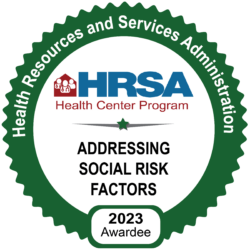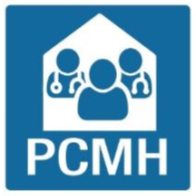Black History Month Shines Light on Advocacy and Service
Black History Month Shines Light on Advocacy and Service
Back to all NewsBlack History Month Shines Light on Advocacy and Service
By Reggie Dogan, Outreach & Events Manager
February is designated as Black History Month, a time to honor and focus on African Americans, known and unknown, from the enslaved people first brought over from Africa in the early 17th century to those living in the U.S. today.
This year, in celebration of Black History Month, I went back to school. Not as a student or even a teacher.
As part of West Florida High School’s commemoration of black history, Principal Esi Shannon invited me to share with the students a person who made an impact on America’s varied history. Each Wednesday, during the month of February, the school invited a community guest to spotlight an African-American icon who overcame challenges to find success in their lives.
In a black history minute read over the school’s intercom, I shared the life and times of Ida B. Wells-Barnett. Born a slave in 1862, she gained freedom after the Civil War, but was orphaned at an early age when both parents and siblings died from yellow fever.
Wells-Barnett was among the fortunate ones whose parents instilled into her the importance of education. She enrolled in Rust College but was expelled after getting into an argument with the school president.
Undaunted, she found a way to finish college elsewhere and became a teacher to support herself and her younger siblings.
Her career path abruptly changed when a good friend was found lynched. The brutal hanging inspired Wells-Barnett to crusade against lynching, racism and sexism. She became a prolific and prominent journalist, activist and researcher in late 19th and early 20th centuries.
After my history minute presentation over the intercom, I visited selected classrooms to talk more about the black history hero, my career as a journalist and an advocate for the disenfranchised, and the healthcare services we provide at Community Health Northwest Florida.
It’s only my speculation, but I surmise that Wells-Barnett would have appreciated what Community Health stands for and would applaud the services and care we provide.
She would have praised our mission to “provide a full range of health and wellness services to all who walk through our doors.”
More than 80 percent of Community Health patients are below the poverty line, and nearly 50 percent are children under 18 years, clear indicators of the health inequities in our community.
Like the people of Community Health Northwest Florida, Wells-Barnett was an advocate for the underserved and the aggrieved. She dedicated her life to a cause. As an early 20th century journalist, Wells-Barnett took on the formidable task of documenting the lynchings of blacks throughout the country in “Red Record: Lynchings in the United States” and “Southern Horrors: Lynch Law in All Its Phases”. During her time, she traced 214 lynchings.
Her great-great granddaughter, Tiana Ferrell, is one of many family members keeping Wells-Barnett’s legacy alive. In a news report at www.news4Jax.com, a television news website, Ferrell lamented the many death threats her great-great grandmother endured.
“Ida had a price put on her head in Memphis,” says Ferrell. “She was ran out of the city of Memphis for telling the truth here.”
Ferrell described Wells-Barnett as a courageous journalist who shed light on the hatred and racism forced upon innocent people. She hopes her courage inspires others to make a difference.
While we all can’t be history-making, nationally-renown activists, we all can find ways to make a difference in our communities, at home and at work.
Community Health Northwest Florida, founded in the South in the midst of the civil rights movement, provides each of us the opportunity to use our time and talent to assure that everyone has access to affordable, quality healthcare. Each of us, regardless of our position or place in the company, can treat each person with respect, dignity and compassion.
At West Florida High School, I drew comparisons between our service to the community and the sacrificial, selfless work of activists like Ida B. Wells-Barnett.
Even though we may pale in comparison, impact and reach of Wells-Barnett, as Rev. Dr. Martin Luther King Jr. says, “Everybody can be great … because anybody can serve. You don’t have to have a college degree to serve. You don’t have to make your subject and your verb agree to serve. You only need a heart full of grace. A soul generated by love.”
Service, compassion and quality care, it’s just what we do here at Community Health. That’s the message I communicated to the students at West Florida High School. That spirit of selfless service is what motivated Wells-Barnett to crusade against lynching, fight for women’s rights and protest racism and discrimination in the U.S. during the Jim Crow segregation era.
In the Telecom 4 class at West Florida High School, senior Oneal Daniels asked engaging questions. He showed keen interest and excitement about the presentation. One of his classmates, said, “Oneal writes poetry. Get him to read it.”
He read it, and later sent me a copy.
In his email to me, he said: “This is my Black History Month poem that I wrote to show the struggles of living below the poverty line as a young black male in today’s society. I wrote this to highlight components in our communities that need to be changed, because if not, the cycle is going to repeat itself.”
I found it apropos to share his feelings, his struggles, his hopes, dreams and fears during the month we set aside to celebrate the struggles and successes of black people in the history of America.
Bikes on Flat
Jay: Born with nothing but the air he breathes.
His shoes were knock-offs but he rakes the leaves.
No father at home, to heat the house it’s an oven.
Yet his mother’s warmth is there and all here lovin’.
His mind is racing as fast as a horse on the track.
Father’s fulfilling a sentence so he knows he’s not coming back.
His mom never asks for anything but she cries out at night,
Praying, calling out to God and he hears, “Fight! Fight! Fight!”
Uneased, unpleased, and at school he is teased,
Yet his mom is griping at him to learn to write and read.
His decisions are tough and his mind is torn,
So he’s prickling into the wrong things like a field of thorns.
Mom works late so he starts hanging with the wrong crowd,
His mom’s voice is fading … while his friends’ voices are getting loud.
Following his father’s path of unclean money and carrying a rifle,
Another young man caught, falling, trapped in the cycle.
He does some bad things and his past catches up,
The walls of the cells are screaming “your time is up”.
His mom, working hard, never wanted this, she was a good lady.
Now she’s in tears, can’t keep her composure … crying for her baby.
Oneal Daniels
Senior, West Florida High School
####
Community Health Northwest Florida’s Diversity and Inclusion Committee is committed to ensuring the presence and perspectives of different groups of people are valued and integrated into the organization’s environment and culture.
Mission Statement
Founded on the belief that all human beings have a basic right to healthcare, our mission is to provide a full range of health and wellness services to all who walk through our doors.
Committed to assuring access to affordable, quality healthcare for the underserved, underinsured and uninsured population, we treat each person with respect, dignity, and compassion regardless of age, gender, race, religion, circumstances or ability to pay.
CREED
We value the importance of creating a workplace where everyone takes pride in making all people feel welcome. We are grounded on the beliefs and principles that equality and equity are essential to achieving our Mission and Vision.
It is critical that we treat each member of the Community Health family with dignity and respect. It is the responsibility of each person to respect and value fellow team members’ individuality, unique talents and skills in order to ensure a safe, diverse and inclusive workplace. We are committed to creating a sense of goodwill and teamwork within the workplace to support the shared goal of delivering the best possible patient experience.



